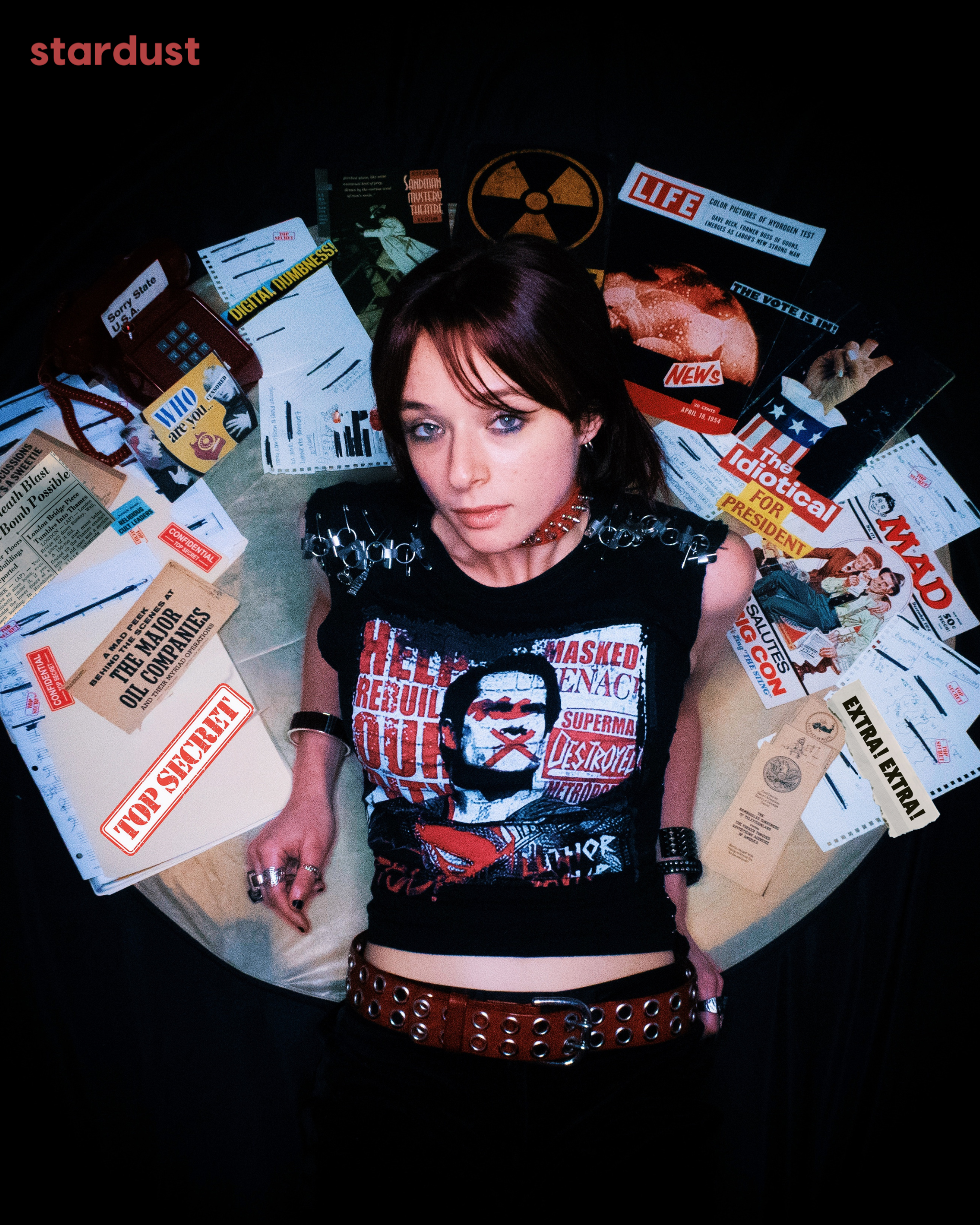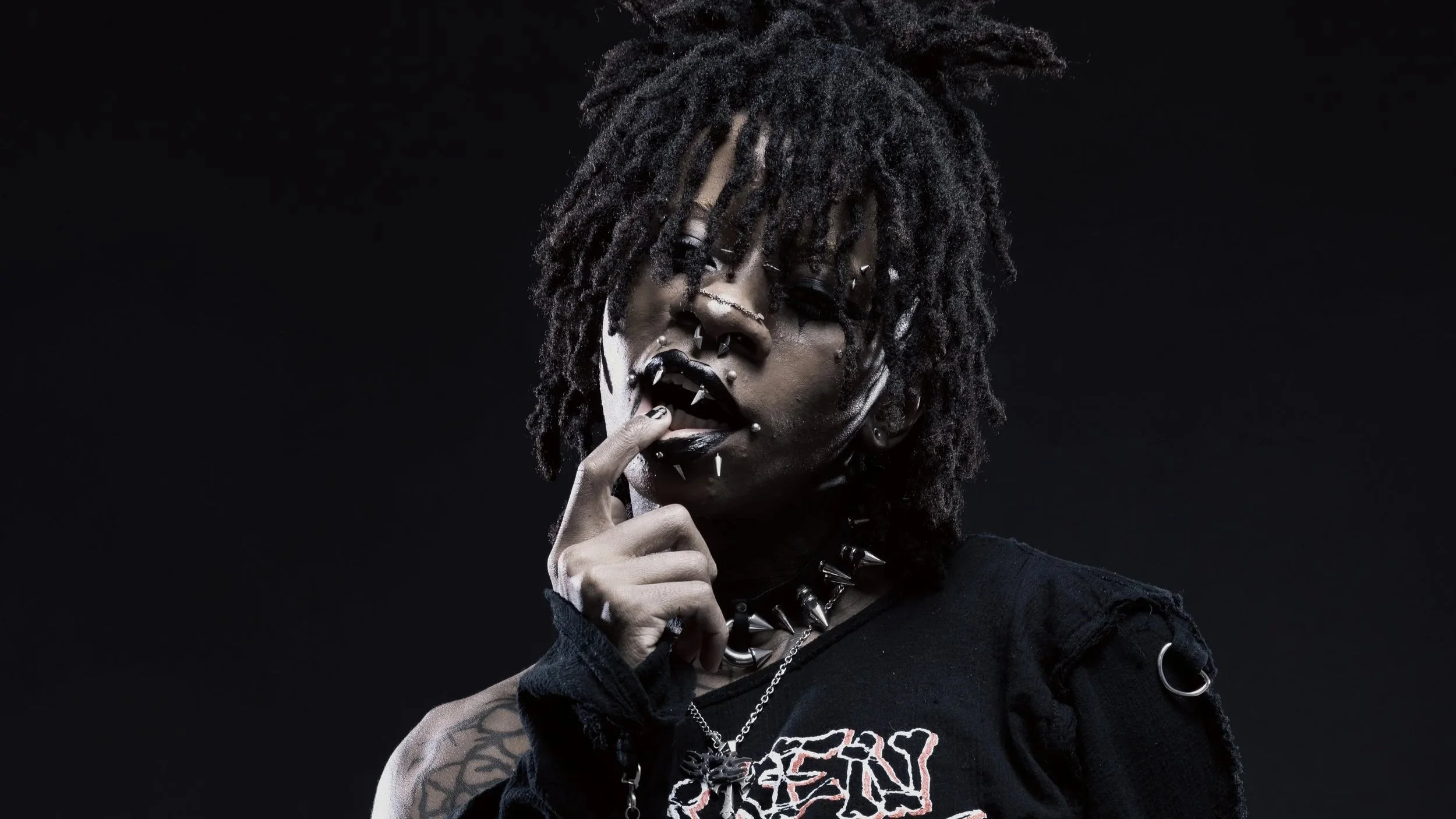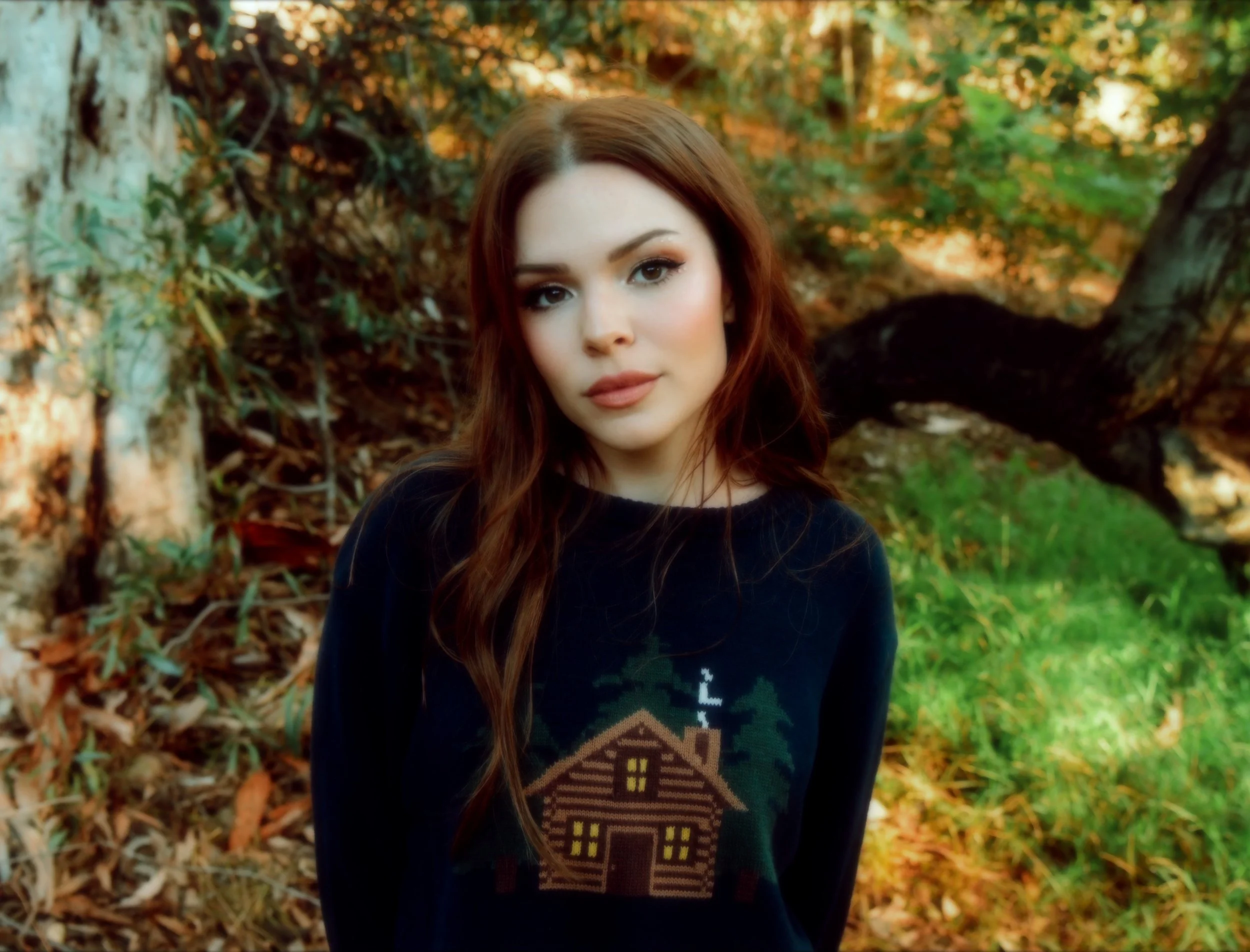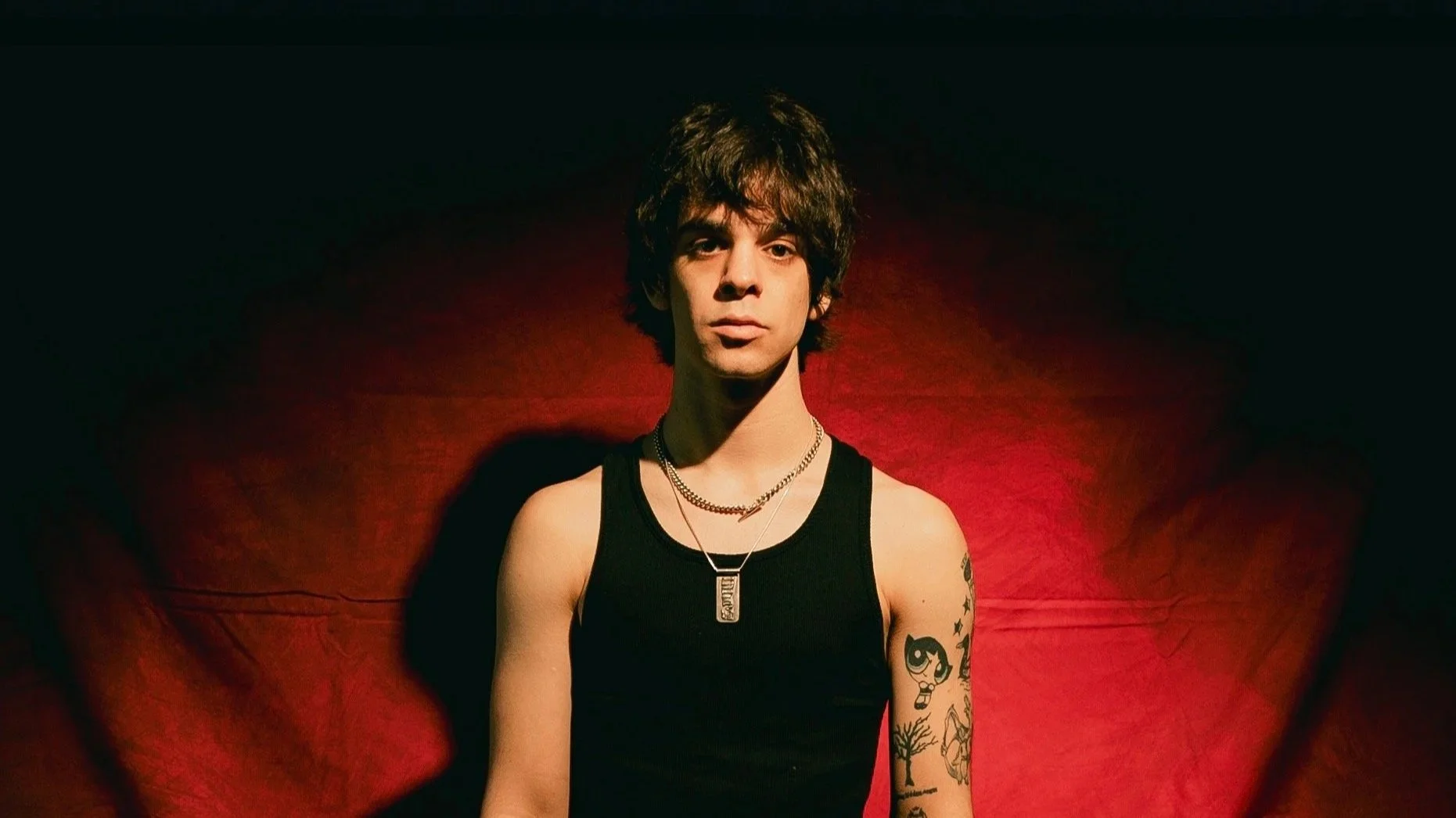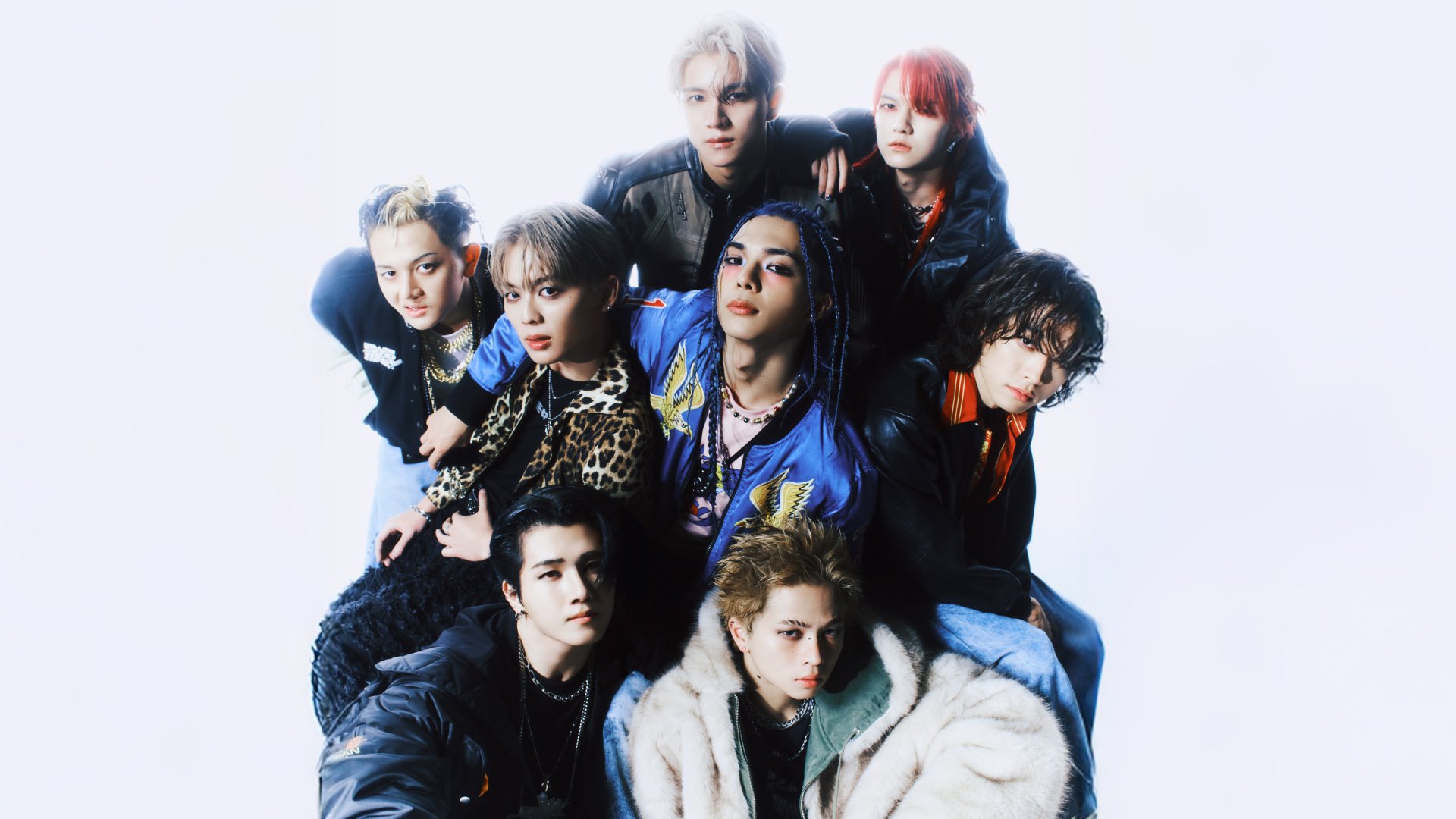Earth to Eve Builds a World with No Kings
Earth to Eve builds her own universe from the ground up. Before a song ever reaches anyone’s playlist, she has already written it, produced it, shot the visual teasers, edited the clips, and designed the artwork that frames it. There is no committee shaping the story and no filter softening the edges. What you see is one person’s vision, stitched together in late nights and computer screens, bold and unvarnished.
Her latest single, “NO KINGS,” takes that independence and sharpens it into something almost feral. Released on October 18, the track evokes a dark, cinematic fever dream, characterized by its pulse and tension. It’s alt-pop that feels like a warning flare, aimed at corruption, hypocrisy, and the polished illusion of freedom sold by the people who hold power. The beat hits like a march. The lyrics sound like someone finally saying out loud what too many people have been swallowing for years. And more importantly, that bluntness is not a one-off moment.
Across her work, Earth to Eve keeps circling the same core questions: who gets to feel safe, who gets to be seen, and what it costs to tell the truth about your own mind. Her songs often sit at the intersection of mental health, identity, and resilience—and they do not pretend everything is fine. Instead, they acknowledge the mess and offer a hand to anyone else who recognizes it.
There are also specific echoes of Amy Winehouse, Ren, and Nina Simone in her approach, but nothing about Earth to Eve feels nostalgic. The production feels current. The point of view feels intensely personal. Pain becomes poetry. Confession becomes movement. “NO KINGS” is another brick in that world she is quietly building, one that asks listeners to question who is benefiting from their obedience and who might be waiting if they finally decide to step outside the line.
You write, produce, and perform your own songs, and you even handle the visuals and artwork yourself. When did you first realize you needed that level of control, and what do you think people misunderstand most about being truly DIY?
Earth to Eve: When I first started making music, I was working with friends and other producers and had minimal control over the sound. I had no formal music training, no notion of music theory, and a very limited vocabulary. There was always this frustrating gap between what I heard in my head and what ended up in the final track, mostly because I didn’t have the technical language or skills to communicate what I wanted. That disconnect is actually what pushed me to start teaching myself how to produce. After about four or so years of obsessively learning my DAW and self-teaching via YouTube, I decided to go back to school to study music at Frost. It was easily one of the best decisions of my life. I got the fundamentals I was missing and focused almost entirely on honing my writing and craft.
I’ve always been a perfectionist and a chronic overthinker, and with my anxiety, having that level of creative control is one of the only things that makes the process feel grounding. Being hands-on with both the visuals and the sound also changed the way I think about storytelling. When I’m producing, I’m already imagining how a transition might work in a video, or how a cut, a color shift, or a visual metaphor could reinforce the emotional beat of the song. My worlds inform each other.
What people misunderstand most about being DIY is the sheer amount of time and commitment it takes. On the visual front, I want every piece of content to have a purpose. I never want to post just to post. If I’m bored watching something, my audience definitely will be. So I try to offer something novel every time, whether it’s the format, the editing, or the storytelling. Most of the “No Kings” videos took hours of compiling headlines, charts, footage, and transitions. And musically, I’ll create ten or so different versions of a song before settling on the direction and arrangement. It's also taken years of daily practice, trial and error, and thousands of mistakes to be able to be fully DIY. And frankly, I’m still learning and far from where I want to be. Being DIY isn’t an aesthetic choice. It’s a long, slow build of skill and intention.
“NO KINGS” feels like a purposeful protest song wrapped in a dark, cinematic alt-pop shell. What was the first spark for it, and how did that idea grow into the version we hear now?
Earth to Eve: The earliest spark actually came during a really rough period. I had just finished an intensive week-long TMS program for my treatment-resistant depression, and I was still really struggling. My partner and I decided to go to Vero Beach for a week so I could be around nature and away from a lot of my stressors. I hadn’t been able to write for a while, and something about being there cracked something open in me. I started building this raw, boom-bap-leaning beat, and the line that kept looping in my head was: “he ain’t your prophet, only preaches for profits.” I didn’t think much of it at the time, and I set it aside for months.
Then one day, I was at the piano messing around with the chord progression that eventually became “NO KINGS,” and the song basically just arrived fully formed. That almost never happens. I could hear the whole world of it: the noir-jazz piano, the sultry tone, but with this distorted, snarling edge underneath it. It was born out of genuine anger at the blatant propaganda and the way people’s rights were being stripped while simultaneously being told everything was fine.
I sent it to my collaborator, John Luke, and he helped hone the percussion vision and really build out the sonic universe. I was particularly inspired by the visceral, gritty feel of Kanye’s “Black Skinhead.” That pulse that feels like it’s breathing down your neck and pounding in your head.
The track takes aim at corruption and the illusion of freedom. Were there specific conversations, headlines, or even personal experiences that pushed you into this space?
Earth to Eve: Honestly, too many to name. The original idea started after the “Big Beautiful Bill” passed. Then the bulk of the writing happened while ICE raids were ramping up in violence and frequency, millions were losing Medicaid coverage, and this whole “America First” narrative was still being marketed to people while the policies themselves were actively harming them.
I was furious at how blatant it all was. How openly people were being lied to, and how many still couldn’t see through it. If you had to distill the whole song into one lyric, it would probably be: “gives you the rope to sell you a coffin.” That’s what it feels like: a country selling people their own suffering dressed up as freedom.
Your music holds space for some heavy topics but still feels like something people can carry with them. What feels most important to you when you’re turning those experiences into a song?
Earth to Eve: Relatability is everything to me. I want my music to be cathartic for other people, not just a diary entry for myself. That means writing from a raw, uncensored place, bruises, blood, and all, but not getting so hyper-specific that the song only speaks to my exact situation.
Instead of listing every reason I’m disappointed in myself, I try to write about what being a disappointment feels like. Instead of cataloging all of my personal anxieties (which would read like a 6-foot-long CVS receipt), I focus on the emotional weight of overthinking. The specifics are mine, but the feelings are universal.
A songwriter named Livingston Taylor told me once, ‘People listen to music to feel seen, not to see you.’ That completely shifted how I write. For a long time, I was writing from a place of wanting to be understood. When I started writing from the human experience rather than my own self-pity, the songs became more impactful. It gave me purpose. The idea that my music and life stories could help people sit with their own vulnerability and maybe understand themselves a little better.
You have named artists like Amy Winehouse, Ren, and Nina Simone as inspirations. What, if anything, have you borrowed from their approach, and where have you deliberately chosen to find your own footing?
Earth to Eve: From Amy, I’ve always carried her unapologetic honesty. Her lyricism feels like reading someone’s diary or being on a FaceTime call, and I try to bring that same intimacy and rawness into my work. Nina Simone’s influence shows up in her melodic complexity and the way she used her voice as an instrument, biting, soulful, evocative. She pushed the emotional boundaries of what the voice could do, and that’s something I’ve always admired and consistently try to integrate into my own music.
Ren is a master storyteller. He prioritizes narrative above genre, and that’s something I deeply connect with. He’s influenced me to let each song dictate its own production; sometimes it's orchestral, sometimes hip-hop, sometimes something else entirely. This versatility is a large part of who I am as an artist, and this approach of asking each song what it needs versus trying to fit it into a pre-existing box or sound has helped me create some really unique genre-fusions I otherwise wouldn’t have experimented with. What ties all three together is that they mastered their craft, a balance of technical skill, soul, and fearless experimentation. That’s the foundation I’m trying to build on as I find my own voice and my own lane.
Because you film and edit every piece of content, you are also directing how people first encounter your songs. How does the visual side of your work feed back into the way you write and produce?
Earth to Eve: A lot of times, the visuals arrive simultaneously with the production. I’ll be working on a track and suddenly think, ‘Oh, this little cutout into the chorus would make an insane visual transition.’ My sense of rhythm and pacing has been shaped by editing short-form content. Trying to tell a compelling story in 30 to 60 seconds forces you to think differently about dynamics, tension, and release. It’s made me much more intentional about contrast, about when to strip things back and when to overwhelm the senses. The visuals and the sound operate in a loop; one feeds the other.
Looking at the world you are building as Earth to Eve, what kind of chapter do you hope “NO KINGS” represents when you look back on this era a few years from now?
Earth to Eve: I hope it marks the beginning of my “no-bullshit” era. The moment I stopped holding back and started standing firmly in my beliefs. “NO KINGS” is protest music for the digital age, a refusal to stay silent in the face of cruelty and corruption. If anything, I hope this chapter becomes a vehicle for information, a soundtrack for the rage, grief, and exhaustion so many of us are feeling. I don’t really control what I write. I sit down, and whatever’s been festering in my mind spills out. Given the constant barrage of information and horrifying headlines, I’ve been finding myself writing more and more about the state of the world, and more specifically, this country. But all in all, if this era represents anything, I want it to be honesty without fear and art without apology.




